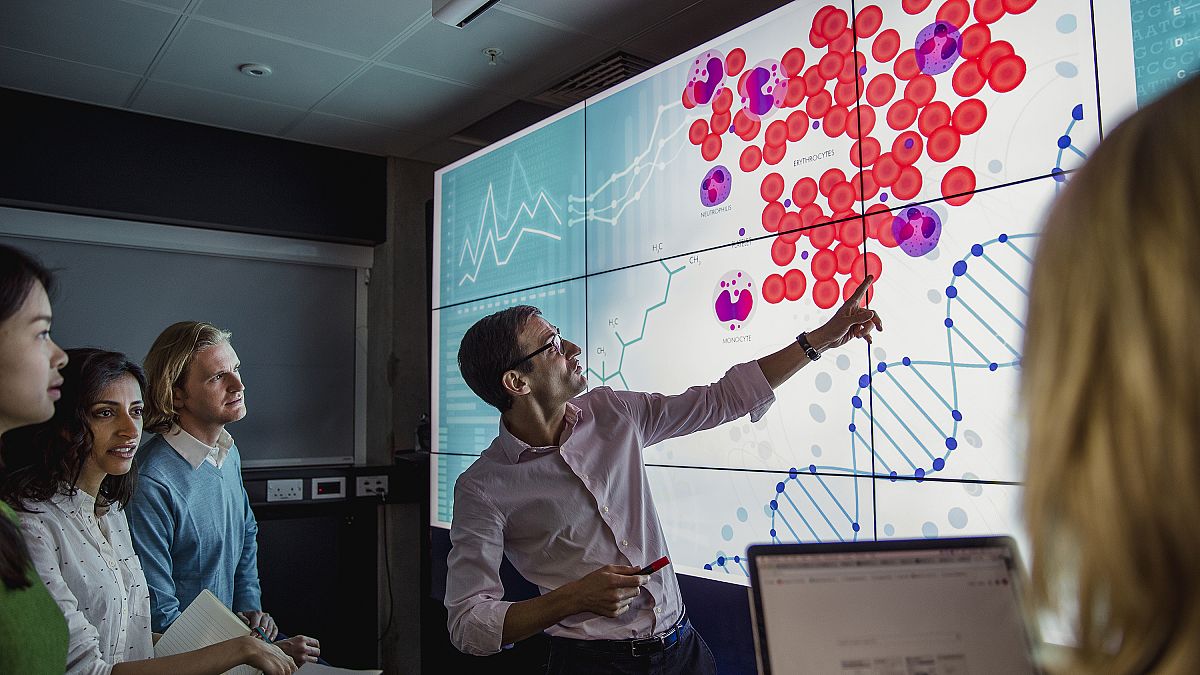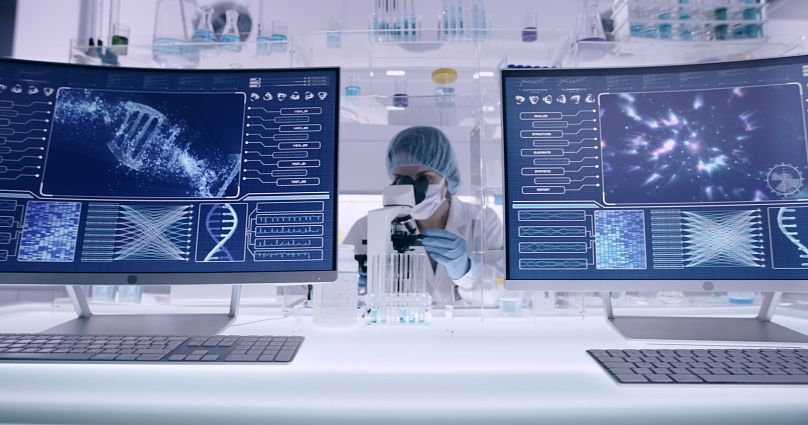Strategic forums such as Abu Dhabi Global Health Week drive much needed innovation in healthcare while fostering international collaboration.
If the 20th century is any yardstick, the future of health should be bright. Over the last 100 years, great advances in the diagnoses, treatment and prevention of illness have helped push life expectancy up by some 20 years in industrialised countries.
Despite incredible human progress, health outcomes are flatlining. As humans we may live longer, but we are more likely to live in ill health than ever before. Chronic diseases such as cancer, heart disease, diabetes and mental health problems are on the rise, killing almost 41 million people a year and projected to account for 86 per cent of deaths globally by 2050. In Europe, the socio-economic burden of chronic disease is €700bn annually, equivalent to 80% of all healthcare costs. Additional challenges such as healthcare worker shortages and a rise in infectious diseases exacerbate an already alarming problem.
If global healthcare is to serve our ageing populations and better address modern challenges, it must shift its focus from keeping us alive to keeping us fit, leveraging 21st century tools to transform the industry and patient outcomes. As part of this proactive outlook, strategic forums such as Abu Dhabi Global Healthcare Week provide unique opportunities to fast track innovation in the life sciences, tackle emerging health challenges and foster collaboration between businesses, policymakers and healthcare professionals.
This is the future of healthcare.
Dr Noura Al Ghaithi, Undersecretary of the UAE Department of Health, reiterated the purpose and aim for ADGHW, stating: “It is our ambition that ADGHW serves as a borderless partnership that can help accelerate the future of healthcare and life science research to solve tomorrow’s challenges. The event will evolve into an always-on platform for open, inclusive exchange and joint action for a healthier world.
“The summit will play one role but Abu Dhabi seeks to accelerate collaboration, innovation, and investment among researchers, policy makers, healthcare specialists, investors, and entrepreneurs from across disciplines and geographies to unlock shared opportunities. Abu Dhabi is already recognised as a region with trusted and advanced healthcare infrastructure, alongside a track record of excellence and data-enabled services. The first ADGHW will be an important milestone on a longer term journey for the healthcare system in this region.”
21st century tools: The power of technology and innovation
Information technology is one of the key tools helping drive innovation in healthcare, producing new and exciting developments in the fields of automation and robotics, virtual and augmented reality, as well as artificial intelligence and big data.
AI, in particular, has the potential to enhance population health management on a global scale, using data to identify patterns and optimise diagnoses, treatment, and prevention. Its reach also stretches into other technologies and tools, accelerating drug discovery, upending medical education through ‘augmented intelligence’ devices and supporting virtual healthcare via clinical LLM (Large Language Model) chatbots.
Immersive sessions at Abu Dhabi Healthcare Week will showcase cutting-edge advancements at the forefront of med tech. Among the 300-plus healthcare companies in attendance include; AppliedVR which develops immersive VR for therapeutic pain management; OTSAW with its autonomous service robots; and Fava Health, a deep-learning, clinical LLM app that uses genomic data to enhance diagnostic accuracy and patient outcomes.
Investment in genomics
Abu Dhabi is taking steps to think about the needs of the future. Its investments in genomics research are about safeguarding the future health prospects of the population. The Emirati Genome Programme is aiming to use genomic data that’s been submitted by more than 440,000 citizens to create a database that can support immediate term decision-making but could also help identify potential diseases long before they arise.
Some of the key partners in the region such as Cleveland Clinic and the Fatima bint Mubarak Centre now have access to an advanced global research network that can facilitate clinical trials, positioning Abu Dhabi at the forefront of personalized cancer treatment innovation. This represents a significant step forward in how Abu Dhabi can prevent and fight diseases in the future.
Through investment in life sciences research, Abu Dhabi is seeking to be at the forefront of development on life-saving drugs through to the development of gene therapies and precision medicine. The insights gained from genomics and life sciences research have revolutionized healthcare in the country, offering hope for treating diseases and improving well-being.
Recent advances in genomics and molecular biology have enabled more tailored medical treatments to be delivered to individual genetic profiles, whereas early detection of genetic predispositions have allowed for proactive disease prevention and management. The changes are helping to shape a different future for Abu Dhabi’s healthcare system and have also demonstrated the importance of key investments in the right sectors to drive change.
Holistic services and cross-sector collaboration
Beyond ushering in a new generation of medical tools, technologies and treatments, forward-thinking policymakers and business leaders understand that the future of health lies in a wider understanding of disease pathology.
Individualised healthcare looks beyond diagnoses and standard treatment, taking into account risk factors, environment and lifestyle choices in the design of tailored treatment plans and preventative approaches. When successfully coupled with mobile technology, big data and AI tools, this patient-centred approach can be aptly labelled revolutionary.
Abu Dhabi Healthcare Week will see a concerted attempt to bridge existing gaps between conventional and holistic medicine, hosting international experts across a diverse range of sectors, including speakers on precision lifestyle medicine from The Institute of Healthy Living, Abu Dhabi, transformative patient care from the US’s Mayo Clinic and digital healthcare innovation from South Korea’s Carna.
Health innovation and ethics
Ethical challenges posed by the rollout of revolutionary healthcare tools are all aspects central to Healthcare Week discussions.
While technology goes some way to democratising healthcare, there remains the issue of accessibility and equity for many new treatments and medicines. Moreover, technological tools pose their own ethical challenges, including those surrounding data security and ethical standards, for which fresh regulation is essential to protect patients and consumers.
To push forward the global dialogue around health data usage, health equity and the integration of AI, Abu Dhabi Healthcare Week will host a closed-door Health Leaders Forum that brings ministers and public officials together with 200 business leaders, CEOs, international investors and leading experts across science, health, and medicine. Among those invited include Professor of Health Policy at the London School of Economics (LSE) Elias Mossialos and various heads of multilateral organisations such as GSK, AstraZeneca and the Pasteur Institute.
Forum discussions will fall under the thematic pillars of Public-Private Partnerships, Artificial Intelligence and Innovation, Global Health Equity and Sustainability and Ethics and Standards. Key Takeaways and policy recommendations made during these discussions can then function as a blueprint for future strategy and planning to help make access to quality, safe and innovative healthcare a reality for all.
Abu Dhabi Global Health Week: 13-15 May 2024
Hosted by the Abu Dhabi Department of Health, Abu Dhabi Global Healthcare Week is expected to bring together over 10,000 attendees, 100 healthcare companies, 100 expert speakers and 1,200 conference delegates under one roof to drive forward progress in the life sciences.
By combining government-oriented programmes with scientific rigour and entrepreneurial spirit, the platform enables knowledge sharing across various disciplines and geographies with the aim of creating more sustainable and adaptable global healthcare systems.
Healthcare fields covered by the event include:
- Digital health
- Biotechnology
- Pharmaceuticals
- Physical therapy
- Rehabilitation
- Mobility and orthopaedics
- Precision medicine
- IT solutions
- Healthcare infrastructure
- Medical devices and equipment


